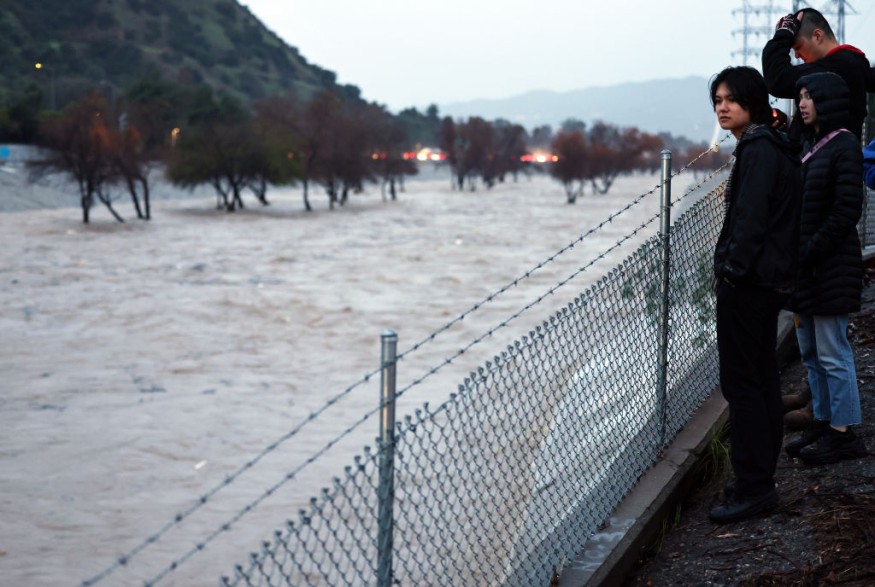
Atmospheric rivers, which are long bands of moisture in the atmosphere, are shifting to higher latitudes, impacting weather around the world.
This change affects rainfall and storms, particularly along the U.S. West Coast.
How Atmospheric Rivers Change Global Rainfall, Storms
According to a recent study published in Science Advances, these atmospheric rivers have moved about 6 to 10 degrees toward the poles over the last 40 years. The study involved climate scientist Qinghua Ding from the University of California, Santa Barbara.
Atmospheric rivers are crucial for many regions, providing more than 50% of the average yearly runoff in places such as California, Southeast Asia, and New Zealand. In California, atmospheric rivers can deliver up to half of the state's annual rainfall.
For example, in 2023, a series of winter storms helped alleviate some drought conditions by bringing significant rain and snow.
However, this shift in atmospheric rivers is not without consequences. As these moisture-rich systems move northward, areas that previously benefited from them may face droughts, while other regions could see an increase in flooding.
The change in patterns is linked to the cooling temperatures in the eastern tropical Pacific Ocean, which are often related to La Niña conditions. These cooler waters strengthen the atmospheric circulation, pushing atmospheric rivers toward the poles.
Increased Rain for Some, Water Shortages for Others
The study noted that since 1979, there has been an increase in atmospheric river activity at latitudes of 50 degrees north and south, with a decline at 30 degrees. This means that regions like British Columbia and Alaska may experience more rain and snow, potentially leading to flooding in those areas.
Scientists are concerned about the implications of this shift. In regions that depend on atmospheric rivers for water, like California and southern Brazil, there could be water shortages if these systems become less frequent. On the other hand, places farther from the equator might see more severe rainfall and flooding.
© 2025 NatureWorldNews.com All rights reserved. Do not reproduce without permission.





